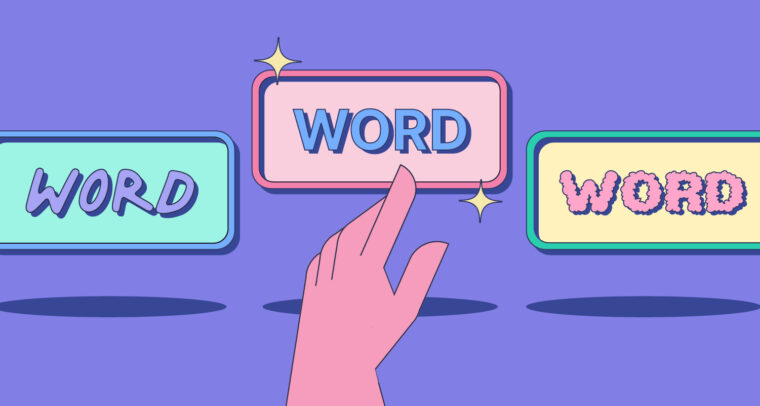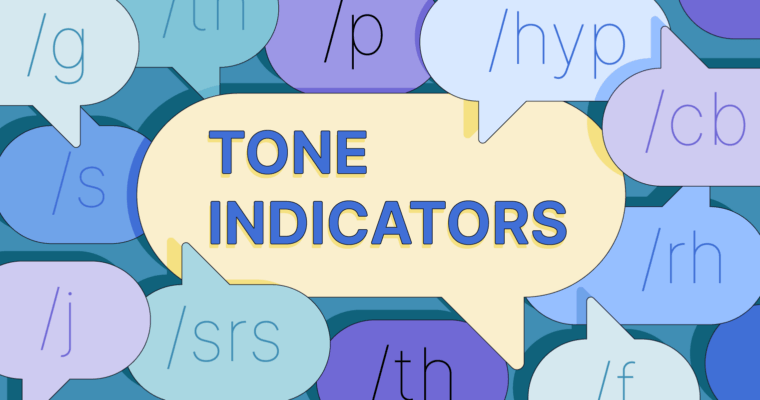
When you’re writing, picking the right word can sometimes be rigid. No, solid. Wait, no—hard.
It’s nothing to be embarrassed about; every writer struggles with word choice from time to time. There are more than 171,000 words in the English language, according to the BBC. To make word choice even more challenging, there are words that sound the same, but communicate different ideas (like “affect” and “effect”), words that mean the exact same thing, but have different spellings in British English and American English (like “grey” and “gray”), and perhaps the most confusing: words that are almost identical and communicate similar yet distinct ideas (like “historic” and “historical”).
And then there are words that are technically interchangeable but have different connotations. For example, reminisce and remember are synonyms, but reminisce has an additional nuanced, specific meaning of fondly remembering times far in the past. So while you might say “I remember I went to the library last Thursday,” you wouldn’t necessarily say “I reminisce about going to the library last Thursday,” unless it was a particularly special experience.
So how can you know which word is the right word to use when you’re writing? And how can you get good at it—maybe even excel at it?
Read on and we’ll explain how you can make word choice your writing superpower.
Problems when you choose the wrong word
Before we get into how you can up your skills in picking the right words, first let’s talk about why word choice is so vital.
When you use the wrong word to communicate your intended point, you weaken your writing. There are a few examples of how:
- Undermining own credibility
- Confusing readers
- Using the wrong tone
- Leaning on clichés
- Being redundant
It’s a lot, we know. Let’s break them down.
Undermining your credibility
When you undermine your credibility, you weaken the point you’re making in your writing. It’s very easy to do this when you use the wrong word, like using “affect” when you mean “effect,” because it makes you look like you either:
- Didn’t proofread your work before submitting it
- Don’t know the correct word
To avoid this mishap, familiarize yourself with 30 of the most commonly confused words in English.
Confusing readers
Beyond undermining your credibility, you can confuse readers when you use the wrong words in your writing. Sometimes, the wrong word completely changes its sentence’s meaning. Take a look at one example:
- Ryan and Nicky compliment each other at work.
- Ryan and Nicky complement each other at work.
In the first sentence, Ryan and Nicky sing each other’s praises. In the second, they support and enhance each other’s roles.
Using the wrong tone
The wrong word can also cast the wrong tone over your writing. Think about the difference between writing “It was an overcast day” and “It was a gray day.” Both words accurately describe a cloudy sky, but one does so in a factual way and the other illuminates the scene in more of a metaphorical way that paints a very different picture in the reader’s mind.
Being cliché
You also run the risk of being cliché when you’re not mindful about word choice. Consider reading through to catch any common clichés, such as:
- Dead as a doornail
- Blind as a bat
- Avoid like the plague
Are they technically wrong? No. Do they make your writing seem uncreative and lazy? In many cases, yes.
Being redundant
And then there’s the issue of redundancy.
Here are a couple of examples of redundant sentences:
- Every Wednesday at 10 in the morning, we have our midweek 10 a.m. meeting
- I can’t believe I won a free gift!
In the first sentence, we get all the information we need about the meeting twice. A more concise way to write this sentence would be “Every Wednesday, we have our weekly 10 a.m. meeting.”
In the second sentence, “free” is redundant because every gift is free. To get even more honed with our word choice: because you won the gift, the word “prize” is more accurate. So the sentence with better word choice here would be: “I can’t believe I won a prize!”
How do I know I chose the wrong word?
Lots of word processors will underline a word that appears to be incorrect in its context and provide suggestions for the right word. Keep in mind this is only for words that are objectively incorrect and not for words that are technically correct, but weak choices.
Grammarly, on the other hand, does catch weak words and provides feedback on why they’re not the ideal choices for the sentences where they’re detected.
If another person edits or proofreads your work, you might get it back with comments like “awk,” “cliché,” and “vague” next to specific words. Follow your editor’s guidance when you find the right words to swap into your piece and if you’re ever unsure of what they meant by a specific comment, just ask.
How to choose the right word
Now that we know all the perils of choosing the wrong words, let’s talk about choosing the right words for your writing.
How do you know which word is the right word? The right word is always the one that communicates your point most clearly. That means it:
- Is specific
- Resonates with your audience
- Fits the type of writing you’re doing
- Fits the style and tone of the piece
As a general rule, the most specific word is the most effective word to use. For example, you could write “All of the people should have received an email about spring break protocols,” and it would be correct. But if instead, you wrote “All of the students should have received an email about spring break protocols,” see how much clearer the message is? Students are people, but they’re a specific category of people, and the only people who should have received the email we referred to in our example.
The most specific word isn’t always the best word choice, though.
The right word is also the one that resonates with your audience best, which sometimes means you have to sacrifice specificity to use a word your audience will understand. Writing with your audience in mind is one of the core tenets of writing effectively.
When you’re writing to a narrow audience who all have similar vocabulary and knowledge, you can afford to be as specific as possible. But when you’re writing to a broader audience, you can’t assume all your readers will understand industry-specific jargon or references that aren’t common knowledge.
If all or most of your readers have to look a word up, swap it out for a more common word.
When a word is correct, but not right
Sometimes, a word that’s correct isn’t necessarily the right word to use.
Consider these two sentences:
- I dislike tomato soup.
- I hate tomato soup.
They both communicate the same idea, but the second sentence uses a much stronger word to communicate that idea. Whether “dislike” or “hate” is the better word choice depends on the context surrounding the sentence. If you’ve been invited to a dinner party and the host texts beforehand to ask if you have any menu preferences, responding with “I hate tomato soup” would likely be considered rude and too harsh for that interaction. But if you’re writing a humorous post for your food blog, “I hate tomato soup” can be the perfect punchy, click-driving title.
Finding the right word
When you know what you want to say, but you’re not quite sure of the best word to express it, the thesaurus can help you out. A dictionary can help too, but a thesaurus’s sole purpose is to provide synonyms—and antonyms, which can be just as helpful!
If you’re not sure of the best word, Grammarly can help you find the perfect word for the sentence you’re writing by suggesting synonyms.
Word choice tips
Increase your vocabulary
The more words you have in your vocabulary—both your passive and active vocabularies—the better equipped you are to make strong word choices when you write.
There are lots of ways you can build up your vocabulary, like through apps like Free Rice and by reading more.
One effective way to increase your vocabulary while you’re reading is to take what many English teachers refer to as word responsibility. Whenever you come across a word you don’t know, don’t just assume its meaning and move on. Look the word up. This won’t just add a new word to your vocabulary; it will help you understand the passage you just read better.
Bigger isn’t better
When it comes to picking the right word, the simplest is often best.
Think about the difference between the words “utilize” and “use.” They mean the same thing, with “utilize” carrying the connotation of using a resource efficiently. Unless “utilize” makes your writing clearer, go with “use.”
This same logic applies to any situation where there’s more than one correct word. Generally, the bigger word is the smaller word’s meaning + a specific connotation. If you don’t need that connotation, you don’t need that bigger word.
The best word might come to you later
If you’re in the middle of writing and you just can’t think of the right word for the sentence you’re working on, don’t let that interrupt your flow. Instead, just write “TK” (shorthand for “to come”) in the space where the word will go and move on. Later, when you’re rereading your work, (ideally after you’ve given it some time to cool off!) you can come back to that sentence. Your fresh eyes are more likely to help you find the perfect word.
Edit with a critical eye
When you’re editing your work, edit with a critical eye tuned to your word choice. In other words, pay close attention not just to what your words mean, but how they work together. Beyond potentially driving you to swap out weak and incorrect words for strong and correct ones, this kind of editing can also result in your eliminating redundant words.
Let Grammarly guide you
Finally, one simple, surefire way to guarantee you pick the right word is to have Grammarly suggest the most effective words for you to use in your writing. Grammarly ensures your writing is readable, clear, and concise by not only flagging overused words and phrases, but offering suggestions for stronger, more precise language. Grammarly also helps you rewrite entire sentences—so your point always comes across as intended.






